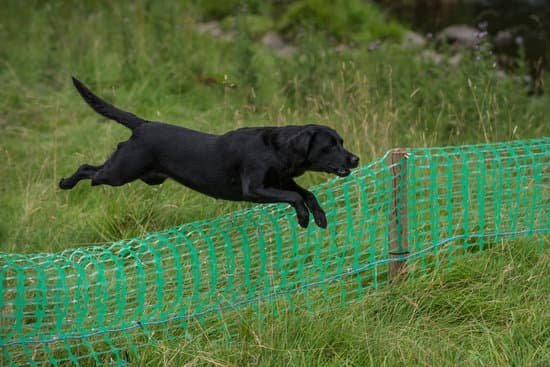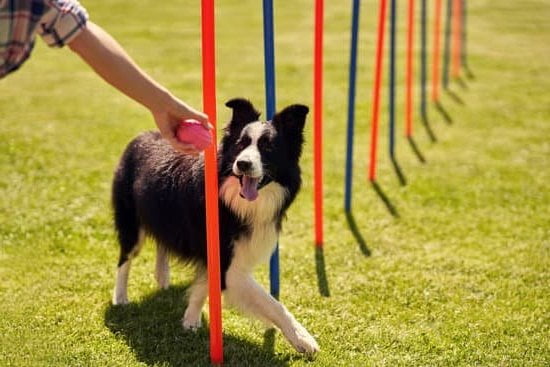Chihuahuas, known for their small size and lively personalities, may not be the first breed that comes to mind when thinking of service dogs. However, these pint-sized pooches have proven themselves to be incredibly capable and effective service animals. In this article, we will delve into the world of training Chihuahuas to become service dogs, exploring their unique qualities and how they can assist individuals with disabilities.
Service dogs play a crucial role in assisting people with various disabilities, providing vital support and companionship. Whether it’s guiding the visually impaired, alerting individuals with hearing impairments, or providing emotional support for those with mental health conditions, service dogs have the ability to significantly enhance quality of life. While larger breeds like Labradors and German Shepherds are often associated with service work, Chihuahuas bring their own distinct advantages to the table.
Chihuahuas possess remarkable intelligence, an eager-to-please attitude, and a compact size that enables them to perform tasks tailored to specific needs. Despite their small stature, they can excel in an array of service dog roles such as retrieving objects, turning lights on or off, or even providing stability and balance support. The adaptability and versatility of Chihuahuas make them well-suited for certain tasks that other breeds may find challenging.
In the following sections of this article, we will discuss essential steps in training your Chihuahua to become a service dog. We will explore how to assess their suitability for service work based on temperament and physical abilities. Furthermore, we will delve into foundational obedience training techniques necessary for building discipline and focus. By understanding these key aspects of training a Chihuahua as a service dog, you will be equipped with the knowledge and tools needed for success.
Assessing Chihuahua Suitability for Service Dog Training
Before embarking on the journey of training a Chihuahua to be a service dog, it is crucial to assess their suitability for this role. While Chihuahuas may not be the first breed that comes to mind when thinking of service dogs, their unique qualities can make them excellent candidates for certain tasks. This section will discuss important factors to consider when assessing a Chihuahua’s suitability for service dog training.
One key aspect to evaluate is the temperament of your Chihuahua. Service dogs need to remain calm and focused in various situations, so it is important that your Chihuahua displays an even temper and does not easily become anxious or agitated. Additionally, they should be adaptable and able to handle stress without becoming overwhelmed.
Intelligence is another crucial characteristic when considering a Chihuahua for service dog training. They should possess good problem-solving skills and be quick learners in order to pick up new commands and tasks easily. Assessing their physical abilities is also important, as some tasks may require strength or agility. However, it is essential to keep in mind the limitations imposed by their small size and fragile build.
Another important factor in assessing suitability for service dog training is their overall health condition. A Chihuahua with chronic health issues or physical limitations may not be able to fully perform the required tasks. It is recommended to consult with a veterinarian before beginning the training process to ensure that your Chihuahua is healthy enough for such rigorous work.
| Factor | Description |
|---|---|
| Temperament | Assess whether your Chihuahua remains calm and focused in various situations. |
| Intelligence | Evaluate their problem-solving skills and ability to learn new commands and tasks quickly. |
| Physical Abilities | Determine if your Chihuahua possesses the necessary strength and agility for certain tasks, while keeping in mind their small size and fragility. |
| Health Condition | Consult with a veterinarian to ensure your Chihuahua is healthy enough for service dog training. |
Establishing the Foundation
Basic obedience training is the key to laying a strong foundation for training your Chihuahua as a service dog. This section will emphasize the importance of establishing discipline and focus through teaching commands like sit, stay, come, and leave it.
Training your Chihuahua in basic obedience commands not only helps develop their ability to follow instructions but also builds a strong bond between you and your dog. These commands are essential for ensuring your Chihuahua’s safety and control in various situations, both at home and in public spaces.
To begin basic obedience training, it is crucial to use positive reinforcement methods such as treats, praise, and toys. Chihuahuas respond well to rewards-based training approaches. Start with simple commands like sit and gradually progress to more complex ones like stay and come. Consistency is key when training your Chihuahua, so make sure to practice these commands daily in short training sessions.
Another important aspect of basic obedience training is teaching your Chihuahua the command “leave it.” This command can be particularly useful in service dog work where the dog needs to ignore distractions or refrain from picking up objects off the ground. Teaching your Chihuahua to leave an object alone can prevent potential dangers or interruptions during their service work.
Establishing a solid foundation of basic obedience training will set you on the path towards successful service dog training with your Chihuahua. Remember to be patient, consistent, and always reward good behavior. With time and dedication, your Chihuahua will become a disciplined and focused service dog ready to assist individuals with disabilities.
| Command | Description |
|---|---|
| Sit | Teaches the Chihuahua to sit on command. |
| Stay | Teaches the Chihuahua to remain in a spot until given further instruction. |
| Come | Trains the Chihuahua to come towards you when called. |
| Leave it | Instructs the Chihuahua to ignore or leave alone an object or food item. |
Socialization
Socialization is a crucial aspect of training a Chihuahua to be a service dog. It involves exposing your Chihuahua to various environments, sounds, and people to help them overcome fear and build confidence. This section will provide guidance on how to effectively socialize your Chihuahua and prepare them for public settings.
To begin with, gradually introduce your Chihuahua to different environments. Start with quieter places like parks or quiet streets before progressing to busier areas such as shopping centers or crowded streets. Allow your Chihuahua to become accustomed to various sights, sounds, and smells they may encounter while performing their service duties. By exposing them gradually, you can prevent overwhelming situations that could inhibit their ability to focus and work effectively.
Another important aspect of socialization is introducing your Chihuahua to different people. Encourage friendly interactions by allowing trusted individuals to offer treats or praise while interacting with your service dog-in-training. This will help your Chihuahua associate strangers with positive experiences, reducing anxiety around unfamiliar people in public settings.
It is also essential for your Chihuahua to learn how to behave appropriately around other animals. Take opportunities for controlled interactions with other dogs or animals, ensuring that both parties are calm and under control during the introductions. Teaching your Chihuahua basic commands like “leave it” and “stay” will allow you greater control over their behavior in these situations.
In summary, socializing your Chihuahua is an important part of training them to be a service dog capable of working in public settings. Gradually expose them to different environments, sounds, and people while maintaining a positive association through treats and praise. Additionally, ensure they interact appropriately with other animals by teaching basic commands like “leave it” and “stay.” By following these guidelines, you can help your Chihuahua build confidence and adaptability in preparation for their role as a service dog.
Task-Specific Training
When it comes to training a Chihuahua to be a service dog, one of the most crucial aspects is task-specific training. This involves identifying the specific tasks that your Chihuahua can perform based on your disability needs and then teaching them those tasks effectively.
Identifying Service Dog Tasks
The first step in task-specific training is to determine which tasks will be most beneficial for you as an individual with disabilities. Consider the daily challenges or limitations you face and think about how a Chihuahua could assist you. Some common tasks that Chihuahuas can be trained to perform include retrieving objects, turning lights on/off, or providing stability/balance support.
It’s important to note that not all Chihuahuas are suitable for every task. Each dog has its own strengths and limitations, so identifying the right tasks based on your Chihuahua’s abilities is essential for successful training. Keep in mind that smaller dogs like Chihuahuas may have physical limitations when it comes to larger or more physically demanding tasks.
Teaching Service Dog Tasks
Once you have identified the specific tasks that your Chihuahua can perform, it’s time to start teaching them. Break down each task into smaller steps and use positive reinforcement techniques to train your Chihuahua effectively.
Start by teaching basic obedience commands like “sit,” “stay,” and “come” before moving on to task-specific commands. Use consistent verbal cues and hand signals as you introduce each new command. Remember to reward your Chihuahua with treats, praise, or play whenever they successfully complete a task.
Consistency and repetition are key during this stage of training. Practice the tasks regularly in different environments and gradually increase the level of distractions as your Chihuahua becomes more proficient. It may take time for them to fully understand and execute each task, so patience is vital.
By identifying and teaching specific service dog tasks to your Chihuahua, you are equipping them with the skills they need to assist you in your daily life. Through consistent training and positive reinforcement, your Chihuahua will become a reliable and valuable service dog.
Handling Distractions
When training a Chihuahua to be a service dog, it is essential to prepare them for the various distractions they may encounter in public settings. Service dogs need to remain focused and calm amidst noise, crowds, and unfamiliar situations. This section will provide strategies and techniques for desensitizing your Chihuahua to distractions, ensuring their ability to perform their tasks effectively.
- Gradual Exposure: Start by gradually exposing your Chihuahua to different environments and stimuli. Begin with calm and quiet areas and gradually introduce them to more challenging situations. This gradual exposure will help your Chihuahua build resilience and confidence while adapting to different distractions.
- Positive Reinforcement: Use positive reinforcement techniques during training sessions in public spaces. When your Chihuahua remains focused despite distractions, reward them with treats or praise. Reinforcing their good behavior will help them associate distractions with positive outcomes, encouraging them to stay focused even in challenging situations.
- Desensitization: Specifically focus on desensitizing your Chihuahua to noises, such as sirens or loud machinery, that they may encounter in public spaces. Start by playing recorded sounds at a low volume while providing treats or engaging them in an activity they enjoy. Gradually increase the volume over time while maintaining positive reinforcement, helping your Chihuahua become accustomed to these sounds without becoming anxious or distracted.
- Controlled Socialization: Part of handling distractions involves socializing your Chihuahua with other people and animals in public settings. Regular interactions with strangers and controlled playdates with well-behaved dogs can teach your Chihuahua appropriate behavior around others and reduce the likelihood of fear or aggression when encountering new individuals or animals.
- Advanced Training Techniques: Once your Chihuahua has demonstrated proficiency in basic obedience commands, you can incorporate advanced training techniques to further enhance their ability to handle distractions. This may include teaching them the “leave it” command, which allows them to ignore potential distractions, or practicing “focus” exercises to improve their concentration in challenging environments.
By implementing these strategies and techniques, you can help your Chihuahua become more adept at handling distractions in public spaces. Remember that consistency, patience, and positive reinforcement are key throughout the training process. With proper preparation and training, your Chihuahua can confidently navigate any distracting situation they may encounter while serving as a valuable service dog.
Access Rights and Legal Considerations for Service Dogs
As a Chihuahua owner interested in training your furry friend to become a service dog, it’s crucial to understand the access rights and legal considerations that come with this important role. Service dogs are highly protected by laws that allow them to accompany their disabled handlers into public spaces and establishments where pets are typically not allowed. Familiarizing yourself with these rights and regulations will ensure a smooth transition for your Chihuahua as they serve their intended purpose.
Understanding Disabled Individuals’ Rights:
Under the Americans with Disabilities Act (ADA), individuals with disabilities have the right to be accompanied by their service dogs in all areas open to the public. This includes places such as restaurants, shops, hotels, airplanes, and public transportation. It is important to note that service dogs are not considered pets but rather working animals specifically trained to perform tasks that mitigate their handler’s disability.
Requirements for a Service Dog:
To qualify as a service dog, your Chihuahua must be individually trained to perform tasks directly related to your disability. They must be well-behaved and under control at all times while in public. Additionally, you may be asked to provide proof of disability or documentation from a licensed healthcare professional certifying your need for a service dog.
Rights of Handlers:
As a handler of a Chihuahua service dog, you have the right to enter any establishment with your dog by your side, regardless of no-pet policies or restrictions. Establishments cannot require you to pay any additional fees or deposits for having a service dog with you. It is illegal for businesses or individuals to discriminate against you based on your use of a service dog.
Educating Yourself on State-Specific Laws:
While the ADA provides nationwide protection for individuals with disabilities who use service dogs, it is important to familiarize yourself with any additional state-specific laws that may exist in your area. Some states have their own service dog regulations that may provide additional protections or outline specific requirements for service dog handlers.
By understanding and advocating for your rights as a Chihuahua service dog handler, you can confidently take your furry companion with you wherever you go. Remember to always provide proper training and keep your Chihuahua’s behavior in check to ensure they continue to fulfill their important role as a service dog.
Ongoing Training and Maintenance for a Successful Service Dog
Once your Chihuahua has been trained and certified as a service dog, it is crucial to prioritize ongoing training and maintenance to ensure their success in their role. Ongoing training not only helps to reinforce the learned tasks and commands but also keeps your Chihuahua mentally stimulated and engaged. Additionally, regular exercise and health checks are essential to maintaining your Chihuahua’s physical well-being.
Continued training sessions should be a part of your daily routine with your service dog. These sessions can focus on practicing previously learned tasks as well as introducing new ones that may be needed as your needs change over time. Consistency is key during these sessions, so it is important to establish clear expectations for behavior and reinforce positive actions with rewards or treats.
Mental stimulation is just as important as physical exercise for a service dog. Engage your Chihuahua in puzzle toys, scent work activities, or obedience exercises that challenge their problem-solving skills and keep them mentally sharp. This will not only prevent boredom but also enhance their ability to adapt to new situations or tasks.
Regular exercise is crucial for maintaining the physical fitness of your service dog. Take your Chihuahua for walks, allow them to run in a safe area, or engage them in interactive games like fetch or agility courses. Proper exercise helps release pent-up energy, reduces anxiety, and promotes overall well-being.
Lastly, don’t forget about the importance of routine health checks for your Chihuahua. Regular visits to the veterinarian will ensure that any potential health issues are addressed promptly. Vaccinations should also be kept up-to-date to protect both you and your service dog from preventable diseases.
By prioritizing ongoing training, mental stimulation, regular exercise, and healthcare for your Chihuahua, you can maintain the success of their role as a service dog. Remember that this partnership between you and your Chihuahua is a lifelong commitment that requires dedication, patience, and love.
Conclusion
In conclusion, training a Chihuahua to be a service dog is a rewarding and fulfilling endeavor that can significantly improve the quality of life for individuals with disabilities. The bond between a Chihuahua and their service role is truly something to celebrate.
Through the careful assessment of suitability and the establishment of a strong foundation in obedience training, Chihuahuas can excel in their service tasks. By exposing them to various environments and socializing them with other animals, we can help them overcome fear and build confidence in public settings. Identifying and teaching task-specific skills allows Chihuahuas to perform invaluable duties such as retrieving objects or providing stability support.
Handling distractions is another important aspect of training, as it ensures that Chihuahuas remain focused and calm amidst challenging situations. By desensitizing them to noises, crowds, and unfamiliar surroundings, we equip them with the necessary skills to navigate public spaces effectively. It is also crucial for owners to understand their access rights and legal considerations when owning a service dog.
Ongoing training and maintenance are vital for the success of any service dog. Continuous sessions reinforce learned tasks while regular exercise, mental stimulation, and health checks ensure that the Chihuahua remains fit for service work.
Frequently Asked Questions
Does a Chihuahua make a good service dog?
Whether or not a Chihuahua makes a good service dog depends on the specific needs and requirements of the individual they will be assisting. While Chihuahuas are generally intelligent and capable of learning tasks, their small size can limit their abilities compared to larger breeds. Service dogs typically need to perform physical tasks such as mobility assistance or pulling objects, which may be challenging for a Chihuahua due to their size.
However, Chihuahuas can excel in certain types of service roles such as emotional support or alerting to medical issues like seizures. Ultimately, it is crucial to consider the specific needs and capabilities when determining if a Chihuahua would be suitable as a service dog.
What type of service dog can a Chihuahua be?
A Chihuahua can serve as an emotional support service dog or a medical alert dog. Emotional support dogs provide comfort and companionship to individuals suffering from emotional or psychological conditions such as anxiety, depression, or PTSD.
Since Chihuahuas tend to form strong bonds with their owners and are often attuned to their emotions, they can excel in this role by providing unconditional love and support. Additionally, due to their alertness and sharp senses, Chihuahuas can be trained as medical alert dogs specifically trained to detect certain medical conditions like seizures, low blood sugar levels, or allergens.
What temperament does a dog need to be a service dog?
The most critical temperament trait needed in a service dog is an overall calm and stable disposition. Service dogs must remain focused on the task at hand even in potentially stressful environments. They need to be well-mannered and able to ignore distractions while remaining attentive to their handler’s needs. Furthermore, they should have a strong desire to please their owner and possess high levels of patience and obedience since they will often face various situations that require discipline and training adherence.
It is also essential for service dogs to be adaptable and able to handle different environments while still maintaining composure. This means being comfortable in crowds, around other animals, and in various public settings without showing signs of aggression or fear. A service dog’s temperament should align with these requirements to ensure they can effectively perform their duties and provide reliable assistance to their handler.

Welcome to the blog! I am a professional dog trainer and have been working with dogs for many years. In this blog, I will be discussing various topics related to dog training, including tips, tricks, and advice. I hope you find this information helpful and informative. Thanks for reading!





